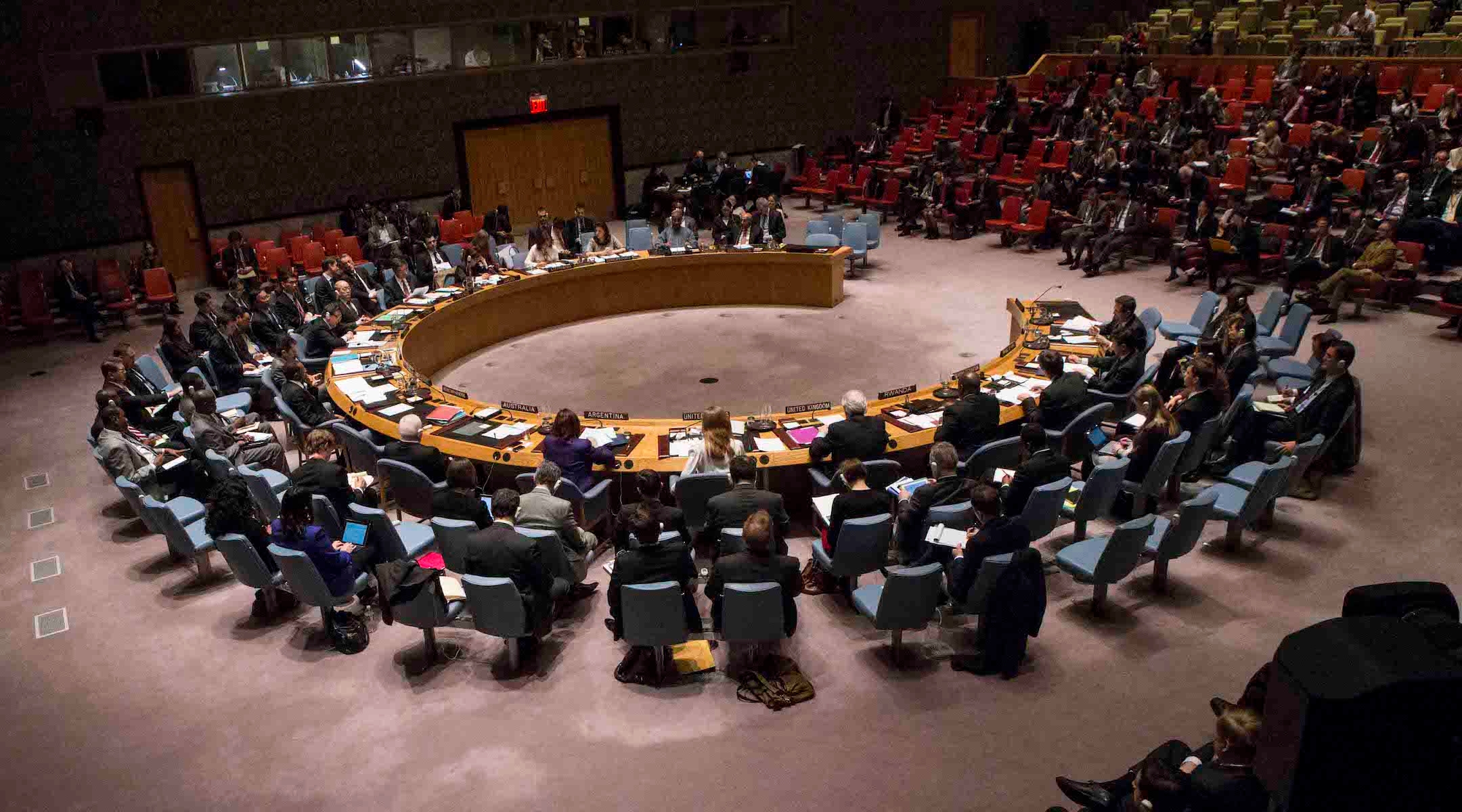UN Security Council adopts resolution urging aid to Gazans, stops short of calling for ceasefire
The United States, which can veto council votes, negotiated for a version it could accept

A view of the U.N. Human Rights Council at United Nations headquarters in New York in 2014. (Kena Betancur/Getty Images)
(JTA) — After days of negotiations, the United States allowed the passage of a United Nations Security Council resolution urging the acceleration of assistance to Gaza Strip Palestinians, but stopping short of calling for a ceasefire.
The resolution passed Friday called for “for urgent steps to immediately allow safe and unhindered humanitarian access, and also for creating the conditions for a sustainable cessation of hostilities,” the Associated Press reported. It did not set out a deadline.
Earlier versions called for “the urgent suspension of hostilities to allow safe and unhindered humanitarian access, and for urgent steps towards a sustainable cessation of hostilities.”
Israel and the United States have said that a ceasefire is not viable until the some 130 hostages who remain held by Hamas are returned and until Hamas is removed from power.
The United States is one of five permanent members of the council able to exercise a veto. It negotiated with the United Arab Emirates, one of a handful of Arab states that maintains full diplomatic relations with Israel, to arrive at a resolution that would not trigger a veto.
The resolution also changed the wording of an earlier version that granted the United Nations exclusive oversight of goods entering the strip to a version that allowed for Israeli intervention. Israel wants to keep Hamas from obtaining material that can be used as weapons.
The United Nations says the state of Gaza since Hamas launched the war Oct. 7 has reached crisis proportions with close to 600,000 people — more than a quarter of the territory’s population — near starvation.
Hamas terrorists raided Israel on Oct. 7, killing more than 1,200 people, most of them civilians, and abducting more than 240. The Hamas controlled Gaza health ministry reports that more than 20,000 people have been killed since Israel launched counterstrikes, including thousands of children. It’s not known what proportion of that number is combatants, although Israel estimated this week that it has killed 8,000 Hamas terrorists and earlier said it believes its offensive is killing civilians at twice the rate of combatants. It’s also not known how many Palestinians have been killed by misfired rockets aimed at Israel.
During a week-long temporary ceasefire, Hamas released more than 100 hostages in exchange for three times that number Palestinians detained by Israel.
One of the hostages still held captive, Gadi Haggai, 73, an Israeli American, has died after being fatally shot on Oct. 7, his family said Friday through a release sent by the Missing Persons Families Forum. He is the first American known to have died in captivity. His wife, Judith Weinstein, 70, remains a hostage in Gaza.
This article originally appeared on JTA.org.
A message from our Publisher & CEO Rachel Fishman Feddersen

I hope you appreciated this article. Before you go, I’d like to ask you to please support the Forward’s award-winning, nonprofit journalism so that we can be prepared for whatever news 2025 brings.
At a time when other newsrooms are closing or cutting back, the Forward has removed its paywall and invested additional resources to report on the ground from Israel and around the U.S. on the impact of the war, rising antisemitism and polarized discourse.
Readers like you make it all possible. Support our work by becoming a Forward Member and connect with our journalism and your community.
— Rachel Fishman Feddersen, Publisher and CEO



















